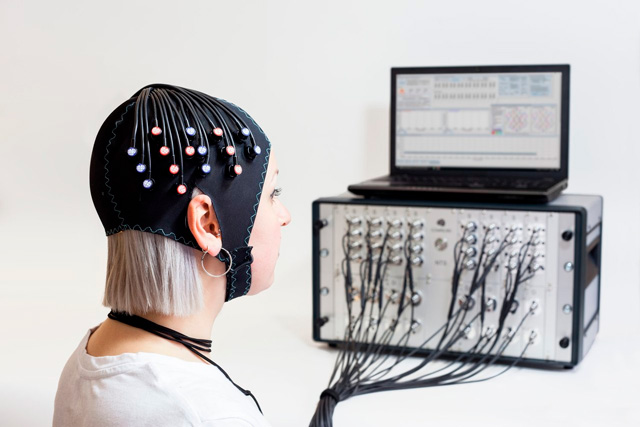Benito Díaz
Recent studies carried out by the Harvard University Medical School, Massachusetts, state that a brain spectroscopy test could be more accurate and fairer in trying to determine the degree of THC intoxication on drivers. The current drug test only establishes the presence of the molecule in the individual and is, therefore, less precise and often unfavourable to regular consumers.
The research team proceeds on the base that THC is the psychoactive principle of cannabis and that it affects cognitive and psychomotor performance. In other words, it hinders the mobility and reflexes of the consumer, making the act of driving difficult and doubling the risk of car accidents with fatal outcome.
The Drogotest, the current and only official way to find evidence of cannabis use, works by detecting the maximum established concentration of THC metabolites in bodily fluids. This method accurately measures other substances, such as alcohol, which has a fixed correspondence. However, in the case of cannabis, and according to the study, this method is prone to false positive results. “THC metabolites can remain in the bloodstream for weeks after the last use, long after the period of intoxication is over, and do not correlate well with affectation. Consequently, concentrations of THC or THC metabolites in breath or bodily fluids are unlikely to provide an accurate and reliable evidence of cannabis intoxication”, the scientists claim.
Brain imaging
From a science-fiction-like image comes an easy-to-use, portable technology. Using an adapted device, an infrared image of the Medial Prefrontal Cortex is obtained. Although the neuronal states caused by substances, including cannabis, are poorly understood, exposure to THC is known to activate several systems in the brain. The more exposure to the substance, the greater the activation of these neuronal circuits, and greater the release of dopamine through the receptors of the Endocannabinoid system, etc.
The Functional Near-Infrared Spectroscopy (FNIRS) system is non-invasive and can be performed on the ground without much technical knowledge. In addition, since the modification that the equipment needs is minimal, it can be adapted and used again in regular or field hospitals, so it can be very economical.
“The research represents a new direction for intoxication testing on the ground”, lead researcher Jodi Gillman, of the Center for Addiction Medicine, MGH, and associate professor of psychiatry at Harvard Medical School, told the Associated Press’ Harvard Gazette. “The goal was to determine whether cannabis intoxication could be detected from brain activity in individuals. This is a critical issue because a ‘breathalyzer’ type of approach does not work to detect cannabis intoxication, making it very difficult to objectively assess THC intoxication during a traffic stop.”
The researcher argues that companies dedicated to manufacturing this type of device “are developing breathalyzer-type devices that only measure exposure, but not the effects of cannabis. We need a method that doesn’t penalise medical marijuana users or others with insufficient amounts of cannabis in their system to affect their performance. While it requires further study, we believe that brain-based tests could provide an objective, practical and much-needed solution.”
The results of the research involved 169 participants, 86 men and 86 women, with a mean age of 25 years. For the tests, the drug Marinol, which contains active cannabinoids, was used, and at least one FNIRS examination test was performed after taking the drug. In the end, by means of a simple results report, they were able to show that these methods can distinguish between participants who are affected by acute THC intoxication and those who are not clearly influenced or who are only slightly intoxicated, with high precision.

Drug testing in Spain
The Drogotest detection system has been the base for thousands of driving tickets. In fact, it is one of the main causes of police reports and has been the aim of cannabis consumers’ rights associations for a long time.
The lack of accuracy of these systems has been proven before. Other studies have already highlighted the difficulty of finding a correlation between the individual factors of each consumer and the degree of presence of THC in their bodies when driving their vehicles. On top of that, there is legal uncertainty in a process that is difficult to appeal, since most of it is solved through the fast administrative route, offering no possibilities to appeal.
“In the cases of Drogotest, they sanction you with a mere circumstantial test, which is the one carried out by Guardia Civil. Subsequently, a salivary sample is sent to the laboratory and, once analysed, is considered a valid proof to back the fine; even though they have already fined us. There are many false positives, many medicines that can give wrong results. Not to mention the unconstitutional spirit of the norm, since the mere presence of drugs in the body is sanctioned, instead of the reduction in the ability to drive. On the matter of the difficulty to appeal, I would point at the third question (50% reduction for prompt payment, on the condition the citizen renounces to appeal). Yes, it forces citizens to an arbitrary test, in which the safeguards are completely absent: false positives, private laboratories, lack of a metrological system, fund collection motive, etc”, commented in this regard the lawyer Esther Sánchez in an article seen on these same pages.
